If you have been invited for an interview, the recruiter has therefore assessed that you have a relevant profile for the position based on your CV and/or cover letter and is curious about what you can contribute both professionally and personally. There are still a number of candidates left in the process, so preparing well will increase your chances of making it all the way through. Think carefully about why you want this job and why the recruiter should choose you.
Before the interview, it is important that you know about the job in question, about the employer – but above all about yourself and what you can contribute. During the interview, questions about your CV and cover letter will arise, so keeping track of what you’ve written there is key. It’s great that you’ve researched the job and the employer, but let it come across naturally. Every recruiter is different, so try to sense when you should speak up and when it is better to let the recruiter steer the conversation. In addition to your qualifications and previous work experience, the recruiter will want to know more about your background, interests and personal qualities. So make sure you think about how to present yourself in a personal and honest way. A very good tip before the interview is to enlist the help of friends and family who know you and practice common interview questions such as:
- “What are your strengths and weaknesses?” Being able to highlight both strengths and weaknesses proves that you have self-awareness so prepare well and be prepared to give concrete examples.
- “Tell us about your previous jobs”
- “What can you contribute?”
- “What results have you achieved in previous jobs?”
Being nervous and a little bit tense before and during the interview is common and quite natural. Make sure you are well prepared to give yourself the best chance for the interview, which will also reduce nervousness. If you feel very uncomfortable, tell the recruiter and they will help you to relax. The important thing to remember is that the pressure is not only on you, but also on the recruiter. It’s as much about you deciding whether the job and the company are right for you as it is about you being right for the job. Recruiters and employers certainly need to choose you, but you should also choose them.
Some quick tips to succeed at the interview:
- Get there on time! Be sure to arrive in good time to avoid being late.
- Take your questions and concerns with you and write them down so as not to forget anything.
- Bring your CV, application, any certificates, grades and contact details of references.
- Be clean and tidy but don’t dress up too much. The most important thing is that you feel comfortable in your clothes.
- Think about body language, handshakes, eye contact and posture.
- Ask about the next steps in the process and when you can expect to be contacted.
How to conduct an interview
An interview usually lasts between 30-90 minutes, depending on the role, and you will initially meet with one person, the recruiter responsible for the recruitment process. Sometimes you can meet with a recruitment assistant to help you with the interview process. The recruiter will guide you through the interview process and you will be asked to tell them about yourself and your background, why you are interested in this job, and to provide information about the company and the position. The recruiter will ask a series of questions that are good to be prepared for.
Questions that may arise during the interview are:
- “Tell us about yourself, who are you and what are your interests?”
- “Why did you apply for this job?”
- “What have you worked on before?”
- “Why did you quit your previous jobs?”
- “If there are gaps in your CV, what did you do during that period?”
- “How do you deal with stress at work?”
- “Which tasks do you like best?”
- “What is important for you to thrive in a workplace?”
- “Why should we hire you?”
- “What can you contribute to this work?”
- “What do you think you will be doing in five years?”
Feel free to ask questions during the interview and show that you are interested and engaged. The interview ends with information on the next steps in the process. In some cases, you may be asked to take a personality and/or skills test to complement your assessment as a candidate.
If you wish, after the interview, you can send an email thanking us for a pleasant interview and saying that you look forward to the next contact. If you have not received any feedback after 14 days, it might be a good idea to contact the recruiter to see how the process is going.
Getting a negative answer after an interview can be hard and sad but try to look at the positive side, you were invited to the interview because the recruiter thought your profile was suitable for the position. You have also been able to practice the interview process, which will make you even more comfortable in the interview situation for the next time. Keep in mind that even in dealing with a negative message, you have an opportunity to promote yourself and how you deal with adversity in a professional and exemplary manner. The recruiter will then certainly keep you in mind for other positions that may suit you in the future.
Good luck in your job search!






